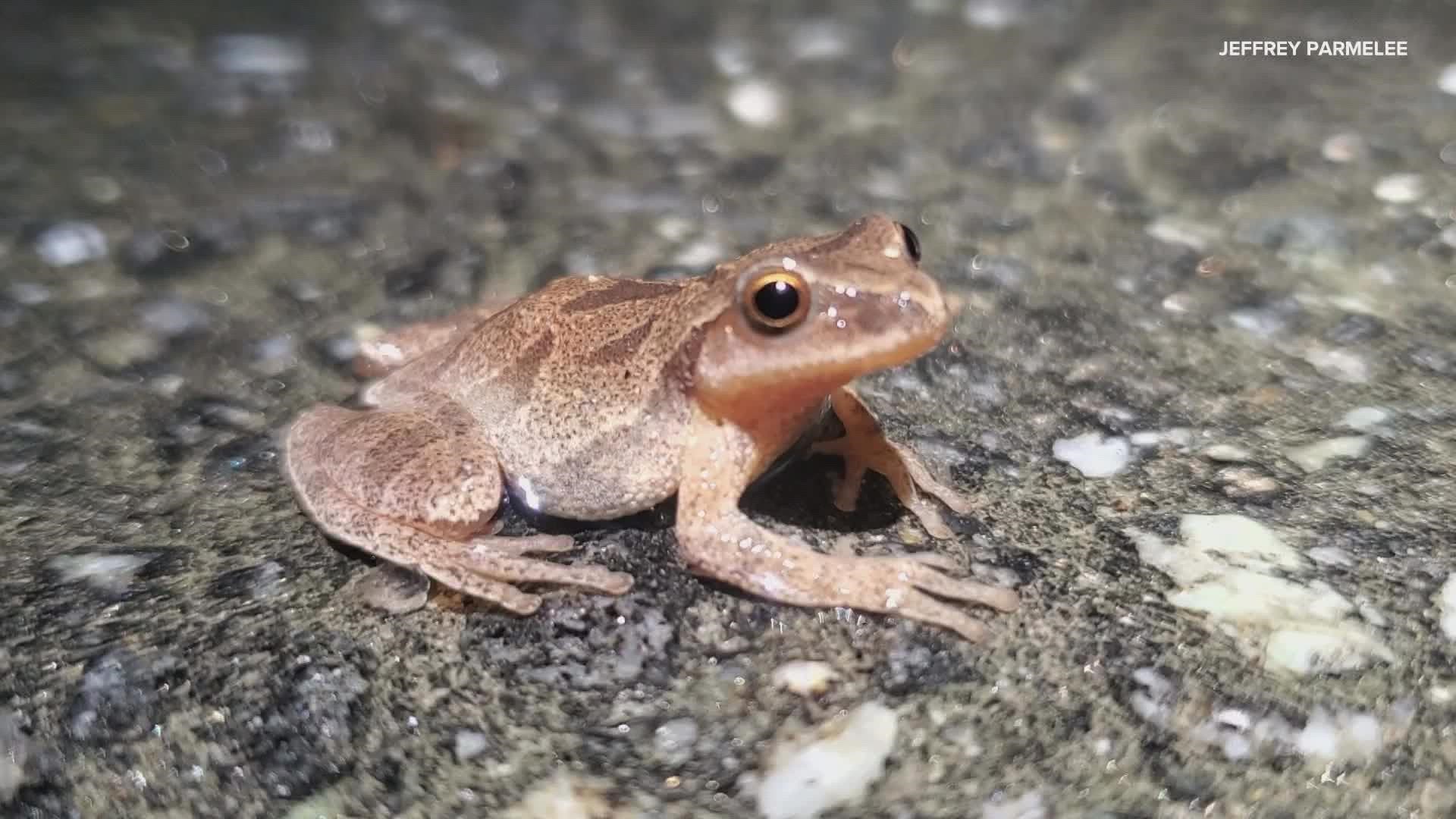BIDDEFORD, Maine — As spring showers make roadways slick with rain, amphibians like spring peepers and yellow-spotted salamanders migrate from where they've been hibernating since the fall to shallow pools of water to breed. More often than not, that means crossing roadways where many get crushed under tires.
For the last five years, in late March and early April, when roadways are wet and temperatures are around 45 degrees, volunteers fan out at night across the state to act as crossing guards for these small critters. The citizen science project is called Big Night Maine. It's not just one night; it's any nights with the right conditions.
University of New England biology professor Jeffery Parmelee leads Big Night Maine outings and helps run the larger project started in 2018 by a University of Maine graduate student, Greg LeClair.
"Amphibians have trouble moving in dry environments because their skin dries out, and they stick to things," Parmelee explained.
The amphibians leave the burrows where they have been since fall in search of vernal pools: shallow bodies of water that dry out in the summer and are void of predators like fish. It is believed that many amphibians return to the same vernal pool every year. In the case of the yellow-spotted salamander, which typically lives for 15 years, that is at least 30 road crossings to ensure the propagation of its species.
Enthusiastic volunteers use headlamps, flashlights, and phones to slowly walk up and down certain roadways, searching for live and dead amphibians. When they're alive, volunteers help them cross the road safely. When they're dead, volunteers try to determine their species. Everything is recorded.
"Nature is so magical and special and so fragile. I just love going out and observing it because when I'm a little older, it might be very different," one University of New England student said.
Although amphibians are abundant in many areas of Maine, they are rarely seen.
"It's so important to get people out there to see these creatures because they're absolutely beautiful, and they're hidden from sight until these brief periods," Parmelee said.
Big Night Maine is growing every year, with volunteers adopting more roadways in Maine to monitor. The years of research are already showing results.
"COVID-19 was not a good year for anybody, but the amphibians actually benefited," Parmelee said, explaining that fewer amphibians died or got hit on the road in March 2020 because there was less traffic.
Amphibians are small; they camouflage easily in the forest and are even hard to spot at night under a spotlight. However, Parmelee said they significantly impact the ecosystem because they recycle nutrients and eat bugs.
They may be shy, slimy creatures, but that doesn't mean they aren't worth protecting, and Parmelee is hoping the research collected through Big Night Maine leads to more habitat protections.

